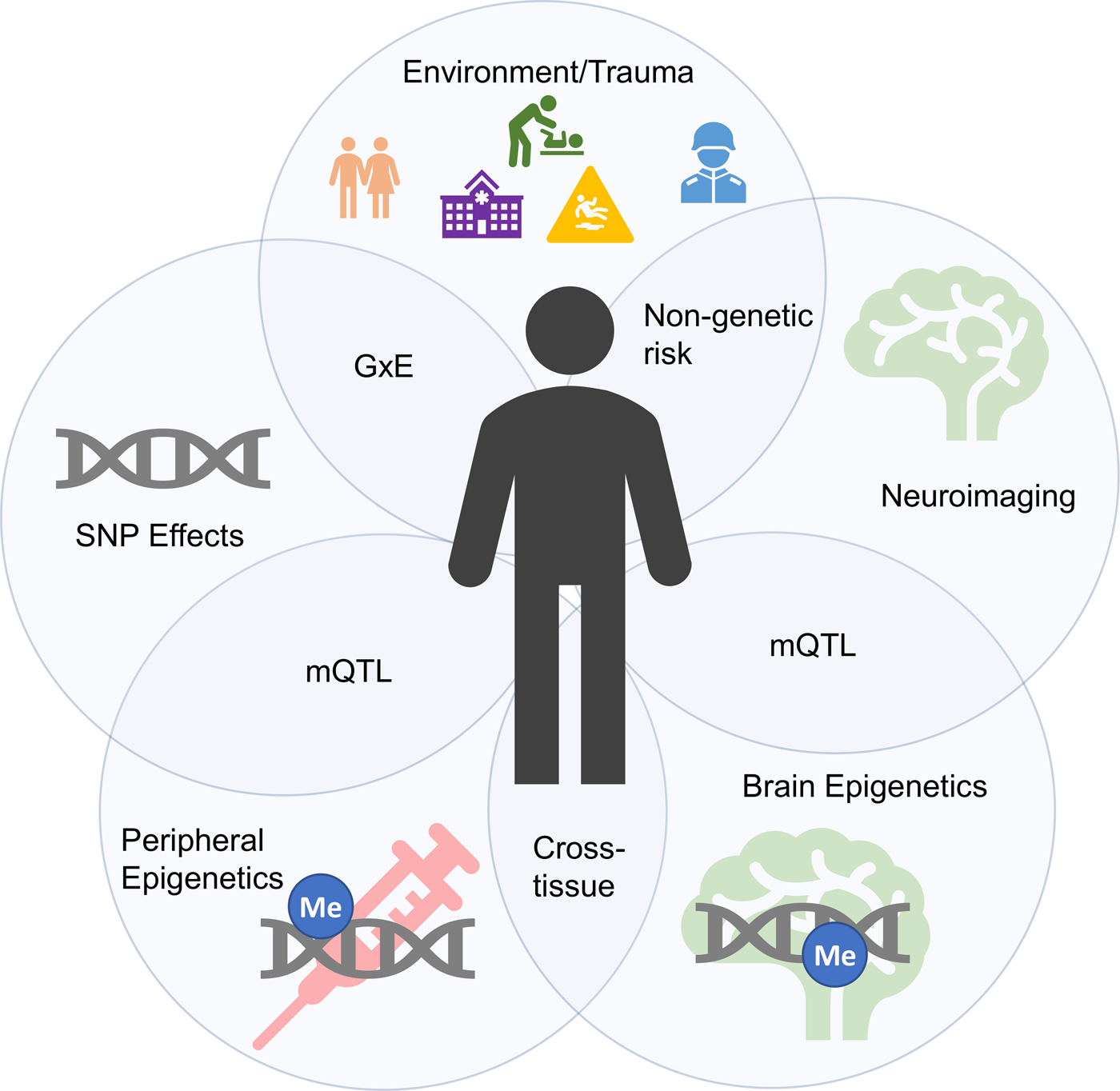Post-Traumatic Stress Disorder (PTSD) stands as a profound and complex mental health condition, often emerging in the aftermath of experiencing or witnessing deeply traumatic events. With its capacity to disrupt daily life, relationships, and overall well-being, gaining a comprehensive understanding of PTSD is crucial. This involves delving into its multifaceted causes, recognizing the diverse populations it impacts, and acknowledging the unique challenges faced by those affected. By broadening our awareness and empathy towards PTSD, we pave the way for developing more effective treatment solutions and support systems, ultimately helping individuals reclaim their lives and fostering a community of healing and resilience.
Understanding PTSD After Domestic Abuse

In addition to flashbacks and nightmares, survivors of domestic abuse with PTSD may find themselves plagued by hyper-vigilance, always on edge and constantly scanning for potential threats. This heightened state of awareness can lead to difficulties in concentrating or relaxing, disrupting sleep and often resulting in chronic fatigue. Social interactions may become daunting as trust issues and feelings of isolation take hold, making it difficult to build or maintain close connections. Furthermore, survivors might experience emotional numbness or detachment as a coping mechanism, inadvertently creating barriers between themselves and others. Seeking therapeutic support can be a crucial step in managing these symptoms, allowing individuals to slowly reclaim a sense of safety and rebuild their lives after the trauma of domestic abuse..
The Link Between PTSD And Substance Abuse

Understanding the intertwined relationship between PTSD and substance abuse is vital for mental health professionals seeking to develop comprehensive treatment strategies. Individuals who suffer from PTSD often experience overwhelming feelings of anxiety, fear, and distress, leading them to self-medicate with drugs or alcohol in an attempt to numb their emotional pain. Unfortunately, this temporary relief typically results in a damaging cycle, as substance use may heighten PTSD symptoms such as increased anxiety, intrusive thoughts, and sleep disturbances. The exacerbation of these symptoms can drive individuals to further rely on substances, creating a vicious loop that is difficult to break. Therefore, it is essential for treatment plans to address both PTSD and substance abuse concurrently, employing integrated therapeutic approaches that incorporate trauma-informed care, cognitive-behavioral therapy, and holistic support systems. By treating both issues simultaneously, individuals have a better chance of breaking free from this cycle, leading to more sustainable recovery and improved mental health outcomes..
PTSD From Emotional Abuse

Emotional abuse, with its insidious nature, often leaves scars that are not immediately visible, but are profoundly deep and long-lasting. As mental health awareness continues to grow, understanding the significance and effects of this type of trauma has become crucial. The PTSD from emotional abuse test plays an essential role in this process, offering a structured way for mental health professionals to identify and evaluate the psychological effects of such experiences. By pinpointing symptoms like anxiety, depression, and emotional numbness, this tool empowers practitioners to offer timely and targeted interventions. Early recognition and intervention can significantly alleviate the enduring burdens of emotional abuse, helping individuals to heal, reclaim their sense of self, and build resilient pathways towards healthier emotional futures..
The Impact Of PTSD in Abusive Relationships

The intricate dynamics of PTSD and abusive relationships create a challenging environment where individuals may feel trapped in a cycle of emotional and psychological turmoil. This trauma bond can bind survivors to their abusers, as they oscillate between hope for change and a deep-seated fear of leaving. As the abuse continues, many survivors grapple with overwhelming feelings of worthlessness, often internalizing blame for their circumstances, which further complicates the process of breaking free. It is crucial for those affected to seek therapy and join support groups tailored to their needs, as these resources provide a safe space for exploring the roots of their trauma, gaining insights into the mechanics of abuse, and gradually rebuilding self-worth. Through professional guidance and shared experiences, survivors are empowered to unravel the complex layers of their emotional entanglements, fostering resilience and cultivating the courage to embark on a journey towards healing and independence..
Addressing PTSD Following Sexual Assault

Engaging in act for PTSD sexual assault involves tailored therapy approaches that empower survivors to process their trauma in a safe environment. Therapeutic methods, such as cognitive-behavioral therapy and EMDR, are commonly employed to help individuals regain control of their life and emotions following a sexual assault. Additionally, supportive group therapy offers a communal space where survivors can share their experiences and gain strength from others who understand their journey. This collective healing process can be crucial in rebuilding trust and connection, both with oneself and within interpersonal relationships. Moreover, incorporating mindfulness and relaxation techniques aids in reducing anxiety and promoting resilience, equipping survivors with the tools to confront and diminish the grip of traumatic memories. As therapy revolves around a compassionate and patient-centered approach, it fosters an environment of hope and gradual healing, encouraging survivors to envision and pursue a future defined not by their trauma, but by their inherent strength and resilience..
Challenges Of PTSD In Healthcare Workers

In recent years, the conversation around PTSD in nurses and healthcare workers has gained significant traction, particularly as global health crises have shone a spotlight on the immense pressures faced by these professionals. The relentless nature of their work, often involving long hours and emotionally taxing environments, puts them at a heightened risk of developing PTSD and related mental health issues. Burnout has become alarmingly common, characterized by emotional exhaustion, depersonalization, and a diminished sense of personal achievement. Recognizing the critical need for intervention, healthcare organizations are increasingly implementing robust support systems designed to offer mental health resources, such as counseling, peer support groups, and resilience training. These initiatives are essential in fostering a supportive network that not only assists in recovery but also promotes mental well-being and resilience, ensuring healthcare workers remain healthy and effective in their roles..
Combat Veterans With PTSD

Combat veterans with PTSD who also experience hoarding disorder represent a distinctive and complex intersection of mental health challenges. For these individuals, the act of hoarding often extends beyond mere accumulation; it becomes a vital emotional anchor in a world that can feel overwhelmingly uncertain and threatening. The items they surround themselves with may offer tangible comfort and a perceived sense of safety, creating an illusion of order against the backdrop of their inner turmoil. Effective treatment strategies, therefore, necessitate a comprehensive approach that not only targets the symptoms of PTSD but also seeks to unravel the compulsive attachment to objects. By integrating therapies that address both disorders—such as cognitive behavioral therapy for PTSD and tailored interventions for hoarding—it is possible to cultivate a path toward healing. This dual-focused strategy can help veterans regain control over their environments and, ultimately, their lives, fostering a renewed sense of stability and well-being..
Testing And Diagnosing PTSD

A comprehensive assessment by a mental health professional is crucial in diagnosing PTSD, as it allows for a detailed understanding of an individual's experiences and symptoms. Structured interviews and standardized questionnaires are commonly used tools that help to quantify the severity of PTSD symptoms and assess their impact on daily functioning. These assessments play a pivotal role in identifying the disorder early, enabling timely and effective intervention strategies. Early diagnosis is essential, as it opens the door to a range of therapeutic options that can be tailored to the individual's unique needs, facilitating recovery and promoting healthier mental health outcomes. Through an accurate and early diagnosis, individuals with PTSD have the opportunity to engage in therapies that can significantly alleviate symptoms, enhance their quality of life, and support their journey toward long-term well-being..
Factors Contributing To PTSD Development

The development of PTSD is a complex interplay of various elements, each compounding the psychological impact of trauma. The frequency with which trauma occurs can exacerbate symptoms, as repeated exposure might reinforce fear responses and hinder recovery. Similarly, the severity of the trauma acts as a pivotal factor, with more intense experiences likely leading to more profound psychological distress. The duration of the trauma also significantly influences the development of PTSD, as prolonged exposure can result in a more entrenched pattern of stress responses. Additionally, an individual's personal history cannot be overlooked; previous encounters with trauma or pre-existing mental health conditions can heighten vulnerability to PTSD. Understanding these variables is crucial not only for tailoring treatment approaches but also for fostering compassionate and effective support mechanisms. By acknowledging the multifaceted nature of trauma and its aftermath, mental health professionals can better address the unique needs of those affected, paving the way for more holistic and personalized recovery journeys..
In conclusion, PTSD's complexity demands a nuanced understanding and a compassionate response to truly support those affected by it. Recognizing the diverse sources of trauma, whether from domestic abuse, combat, or other distressing experiences, is essential in tailoring effective interventions. As we deepen our awareness and enhance our approaches with professional treatment and community support, we pave the way for healing and resilience. By fostering environments where open dialogue and understanding thrive, we can help individuals reclaim their lives from the grips of PTSD, ultimately leading to empowered and healthier communities.


